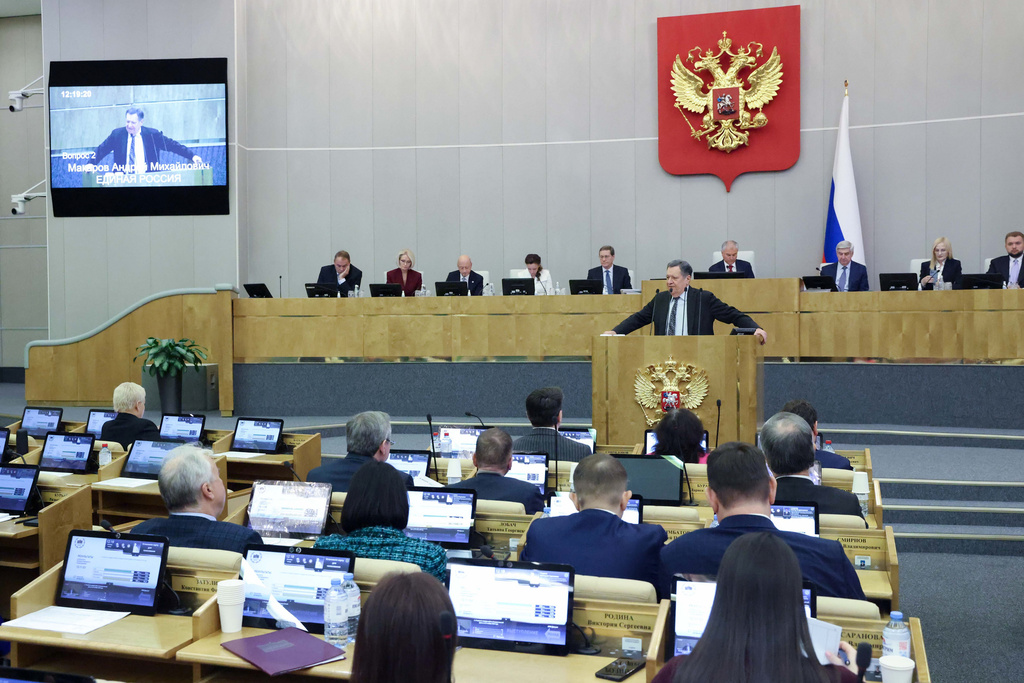Russian lawmakers approved a new bill Thursday boosting taxes for those labeled foreign agents by the government.
The bill, which passed its third and final reading in the lower house of parliament, outlines an income tax rate of 30% for individuals with the designation and takes away their right to government tax breaks.
Income tax for most residents ranges between 13% and 22%, depending on their earnings. The 30% tax rate previously only applied to nonresidents who were working for foreign companies.
The bill also bars organizations labeled as foreign agents from applying for reduced corporate income tax rates.
“Those who betrayed our country should not receive tax breaks,” lawmaker Vyacheslav Volodin said in a social media post announcing the bill’s passage. “They will pay higher taxes to the state budget.”
The legislation must be approved by the upper house and then signed by President Vladimir Putin before it becomes law.
The changes are just one part of wider changes to Russia’s tax system as Moscow looks to boost its economy during its nearly 4-year-old war in Ukraine.
Russian lawmakers also approved a bill that will raise value-added tax from 20% to 22%, a move expected to add as much as 1 trillion rubles (about $12.3 billion) to the state budget.
Under Russian law, anyone considered by the government to be under “foreign influence” can be deemed a foreign agent.
The legislation obliges organizations to identify themselves as being foreign agents and media outlets designated as such must run a lengthy statement to that effect with their stories.
Foreign agents are also banned from organizing public events, teaching in state schools and receiving state financial support, among other restrictions.
The law has been used against opposition supporters, independent media and human rights activists, with critics describing it as a way of trying to discredit organizations that do not follow the Kremlin line.
(AP)











